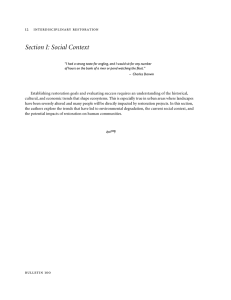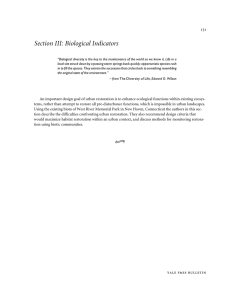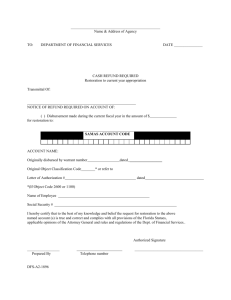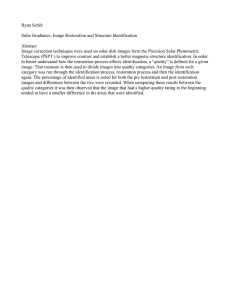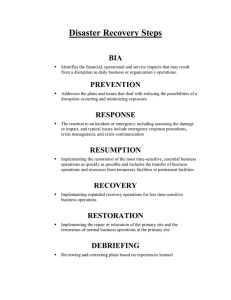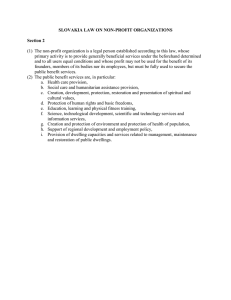The Model Accounting structure TABLE A: Environmental Asset Summary Table
advertisement
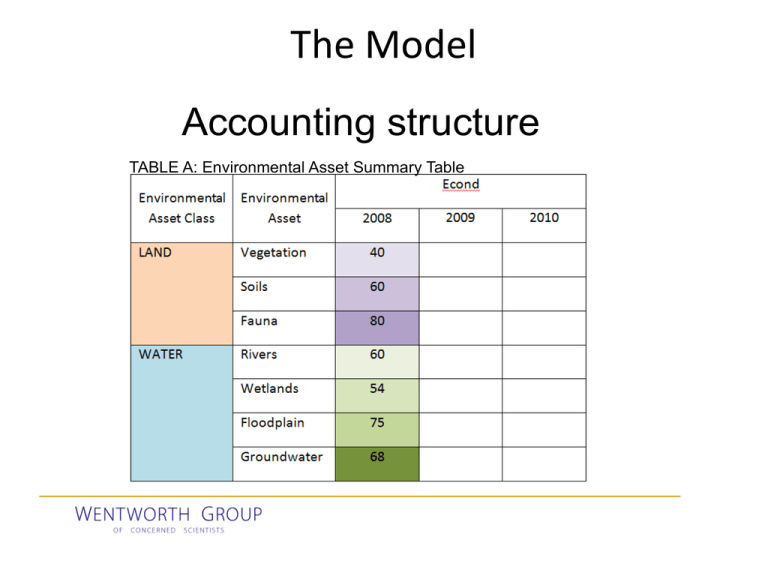
The Model Accounting structure TABLE A: Environmental Asset Summary Table There are a large number of composite indicators 2 6-fold increase in 5 years 3 Pro & cons of composite indicators (CI) Pro Cons CI can be used to summarise complex or mulidimensional issues. CI may send misleading, non-robust policy messages if they are poorly constructed or misinterpreteded. CI provide the big picture. The construction of CI involves several stages where judgement and selection has to be made, CI help attracting public interest There could be more for disagreement about CI than on individual indicators CI can help to reduce the number of indicators The CI increase the quantity of data needed both for completness and for staistical analysis 4 Restoration costs- -carbon sequestration value By taking the current extent of each under-represented vegetation type, it is possible to calculate the area of restoration required to achieve the 30% target. By combining this data for all 19 under-represented vegetation types, the total area targeted for restoration priority can be easily calculated. If you were to cost the restoration of each of those hectares based on previous project expenditure, you could estimate a total restoration cost. It is also possible to estimate the carbon sequestration value of achieving that restoration target. We are only able to do this, because we have designed an environmental condition account which connects asset condition to policy targets and policy targets to investment decisions. Economic evaluation • Different targets will different cost curves • Selection of one may perhaps be used to establish prefererences QUESTIONS • Whatdata to select for representation – procedures – overall model? • How to ensure data-quality • Uncertainty estimates? • Weight and implicit trade offs in composite indicators • Can E-cond measures be generalised to a sum for Australia if standardized? • Can E-cond be disaggregated in terms of temathic indexes?
